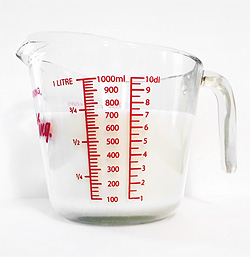Milk and dairy products

![]() Since cow’s milk can reduce your baby’s appetite for other foods, including iron-rich foods, don’t give her more than 750 ml (25 oz) per day.
Since cow’s milk can reduce your baby’s appetite for other foods, including iron-rich foods, don’t give her more than 750 ml (25 oz) per day.
Photo: Sophie Charest
This section covers cow’s milk, yogurt, and cheese. Breastmilk, commercial infant formula, and other milks are covered in the first chapters of Feeding your child.
Milk, yogurt, and cheese contain protein and minerals, including calcium. They help build and maintain healthy bones and teeth. Cow’s milk is also enriched with vitamin D, which helps the body use calcium more efficiently.
Choose high-fat milk and dairy products rather than “light” or low fat options. Your child needs these fats to grow and develop properly. Make sure that milk and dairy products are pasteurized (see What milk should I give?).
Cow’s milk: not before 9 months
Between 9 and 12 months, once your baby is eating a varied diet including iron-rich foods, she can gradually start drinking pasteurized 3.25% cow’s milk (3.25% milk fat). For more information, see Anemia.
Yogurt and cheese
You can give your baby yogurt and cheese once she has started eating iron-rich foods at least twice a day. Choose pasteurized yogurts and cheeses.
It’s best to choose plain yogurt, to which you can add pureed fruit or pieces of fresh fruit. Commercial fruit yogurt contains added sugar or sugar substitutes.
As with all dairy products, opt for high-fat yogurt and cheese. Low-fat and fat-free yogurt and cheese are not suitable for the needs of young children.
If you make your own yogurt, use whole milk (3.25% milk fat).


